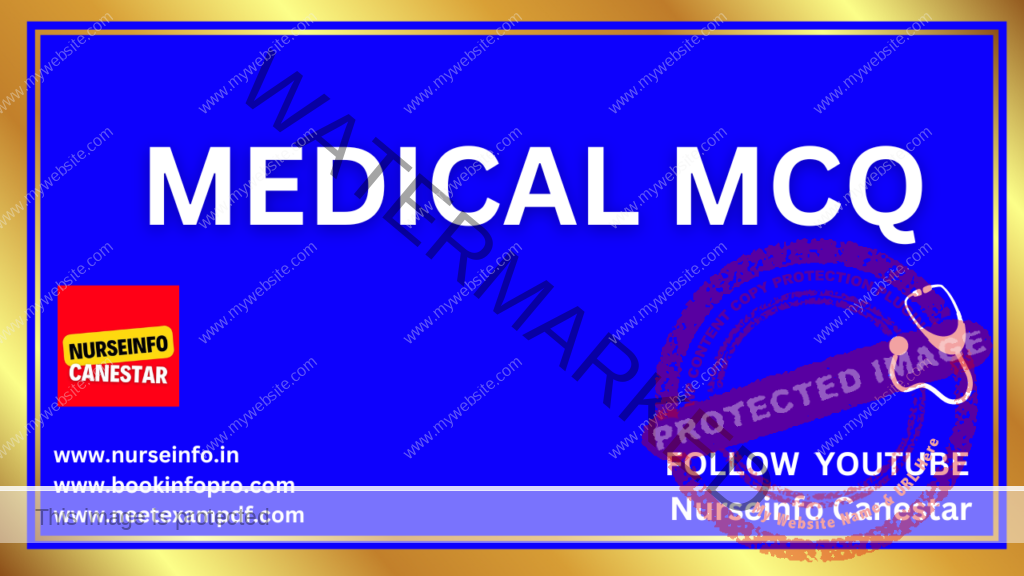Medical MCQ – Multiple Choice Questions for Competitive Exam Preparation
Multiple-choice questions (MCQs) are a popular format for assessing knowledge or understanding in various fields. We have complete list of medical mcq based on medical subjects and topics to prepare for competitive examination.
HOW TO ACE IN MCQ (MULTIPLE CHOICE QUESTIONS) EXAMINATION
- Question: The question presents a problem, scenario, or concept that the respondent needs to address. It should be clear and concise, with only one correct answer.
- Answer Choices: Typically, MCQs offer several options for the respondent to choose from. These options include one correct answer (the “correct” or “key” answer) and several incorrect answers (the “distractors”).
- Distractors: Distractors are the incorrect answer choices. They are designed to mimic plausible misconceptions or common errors related to the question topic. Well-crafted distractors make the question more challenging and help assess the depth of understanding.
- Correct Answer: This is the one option that accurately addresses the question or completes the statement correctly.
- Instructions: MCQs may be accompanied by specific instructions, such as “Select the best answer,” “Choose the most appropriate response,” or “Mark all correct answers.” Respondents should follow these instructions carefully to ensure they answer the question correctly.
- Guessing: Since MCQs offer multiple options, respondents may sometimes guess the correct answer even if they are unsure. However, guessing is less likely to yield correct answers if the distractors are well-constructed.
- Scoring: Each MCQ is typically scored as either correct or incorrect. If the respondent selects the correct answer, they receive full credit for that question. If they choose an incorrect answer or leave the question blank, they receive no credit.
- Multiple Responses: Some MCQs may allow for multiple correct answers. In such cases, respondents must select all the correct options to receive full credit.

Here are some common medical topics:
- Anatomy: Study of the structure of the body and its organs.
- Physiology: Study of the functions and processes of living organisms.
- Pathology: Study of diseases and their causes, processes, development, and consequences.
- Pharmacology: Study of drugs and their effects on the body.
- Epidemiology: Study of the distribution and determinants of health-related states or events in populations.
- Immunology: Study of the immune system and its response to pathogens.
- Genetics: Study of genes, heredity, and genetic variation.
- Microbiology: Study of microorganisms, including bacteria, viruses, fungi, and parasites.
- Neurology: Study of the nervous system, including the brain, spinal cord, and nerves.
- Cardiology: Study of the heart and cardiovascular system.
- Pulmonology: Study of the respiratory system and diseases affecting the lungs.
- Gastroenterology: Study of the digestive system and its disorders.
- Endocrinology: Study of hormones and the endocrine system.
- Oncology: Study of cancer and tumors.
- Pediatrics: Branch of medicine dealing with the care of infants, children, and adolescents.
- Obstetrics and Gynecology (OB/GYN): Branch of medicine dealing with pregnancy, childbirth, and female reproductive health.
- Psychiatry: Branch of medicine dealing with mental disorders and their treatment.
- Surgery: Medical specialty involving operative procedures.
- Radiology: Medical specialty involving medical imaging techniques such as X-rays, CT scans, MRI, and ultrasound.
- Public Health: Study of improving and protecting the health of communities through education, policy-making, and research.

